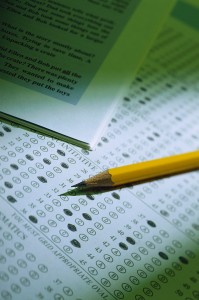 What price, assessment testing? As to reviewing the academic standing of our students, in other words, when is enough enough?
What price, assessment testing? As to reviewing the academic standing of our students, in other words, when is enough enough?
“Frankly today, already,” maintains State Rep. John McCoy (D-Tulalip). “We have more yardsticks for measuring accountability in our education system than we know what to do with. I want our schools to determine the testing that isn’t effective — and then get rid of it.
“Certainly, I’m encouraged by (Superintendent of Public Instruction) Randy Dorn’s comments the other day,” continued McCoy, who was recently reaffirmed to keep his seat on the House Education Committee.
Dorn’s Office of Superintendent of Public Instruction (OSPI) notes in a Thursday, Dec. 13, 2012, press release:
Students in the Class of 2012 were required to pass two exit exams. By the time this year’s 10th-graders graduate, it will be five.
Calling it “über-testing,” McCoy lampooned this absurdity with a simple, hypothetical query: “OK, so we have two high-school-graduation assessments now — and we’re on the verge of adding three more?
“In bottom-line, bang-for-buck terms,” he asserted, “this level of testing simply isn’t delivering the goods. We don’t ensure core competencies — provide the skills and knowledge young people need to seek and sustain 21st-century careers — by throwing test after test after test at them.”
McCoy will hit the 2013 legislative ground running when the upcoming session blasts off at noon on Monday, Jan. 14.
He has House Bill 1015 in the pipeline “to advance a much-needed conversation about curbing this testing-infatuation which has so many folks so atwitter.” The McCoy measure recognizes that, “in the area of student performance assessments, a balance must be found between accountability and cost.”
Our Evergreen State has piled test upon test, and when high-school seniors fail their exit tests, the system scurries to arrange retakes, do-overs, mulligans, and whatnot.
“Accountability is very important — yes, for sure,” McCoy said, “but a Frankensteinian monstrosity has emerged due to the cost and burden of testing. This assessment mentality has taken on a life of its own.”
You want to talk price tag? Dorn noted that the exit-exams for high-school students cost 30 bucks a pop. Right now, if students don’t pass an exam, they can demonstrate their academic chops in other ways.
The Collection of Evidence (COE) “leads to a Certificate of Academic Achievement,” says a COE website, “and is one of three alternative assessments available to Washington State high school students.” The COE tab is $400 for each student in each content area.
